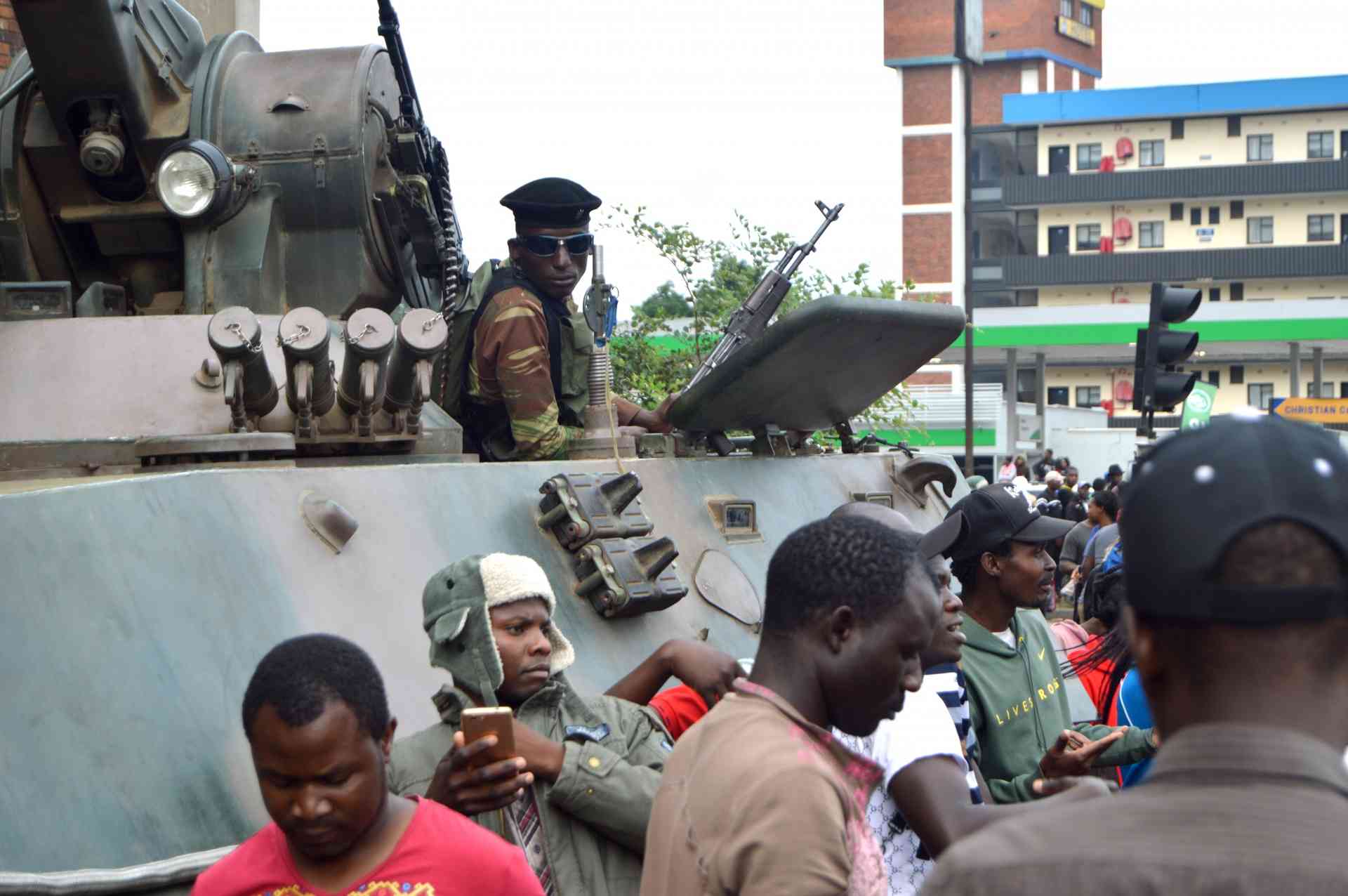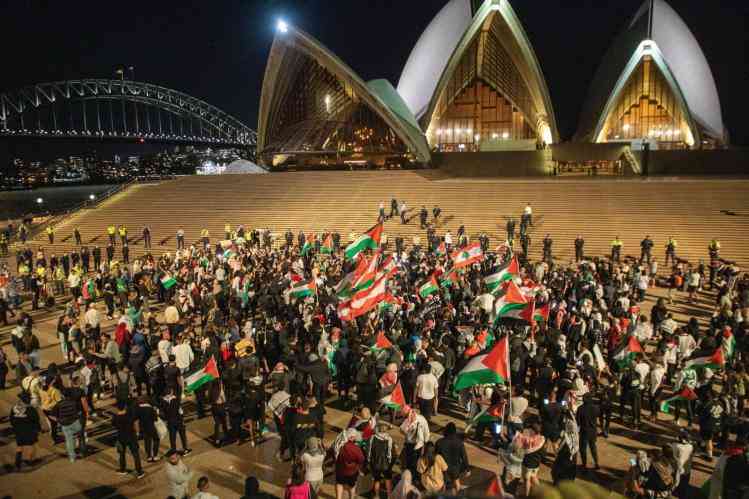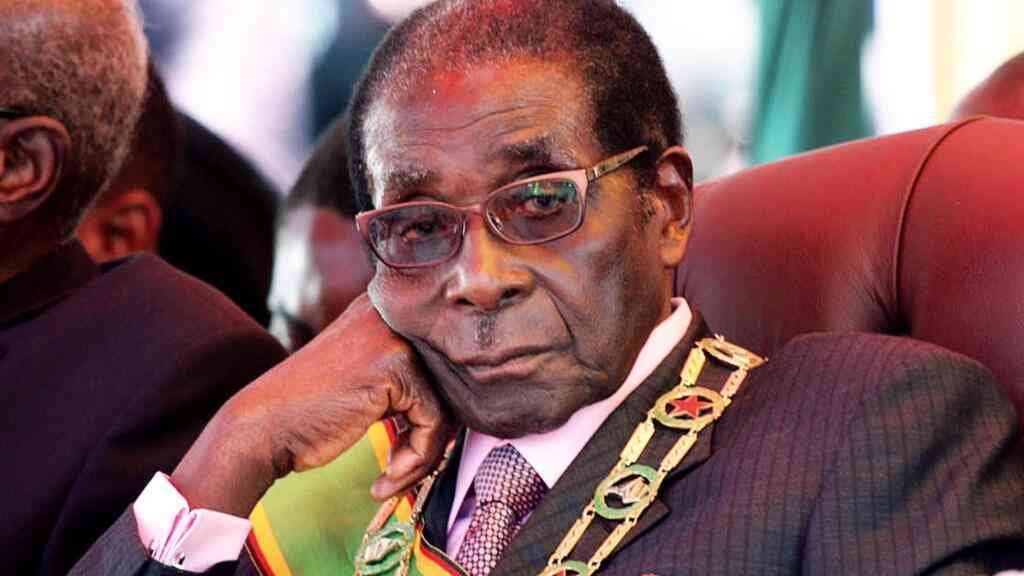
I said it last week, that the military would not have been able to execute the coup of 2017 had it not been that there were numerous factors that aided that smart deposition of Robert Mugabe.
Here is the throwback summary. Mugabe’s intense unpopularity here and abroad that coupled with his overstay in power, his old age that severely reduced his capacity to make sound decisions, army readiness and willingness to push him out and the most likely intellectual, material and logistical support from world powers like China and Britain.
Poor judgment led to political laxity on the part of Mugabe and his G40 allies as they nursed the developing coup.
One of the G40 masterminds, Jonathan Moyo, even produced what he called the Blue Ocean Documentary detailing the coup plot and everyone who mattered in Zanu PF watched it.
Yet Mugabe, Moyo and the rest went back home to slumber, shooing the coup away with their heavy snores.
Then there was this issue about the Lacoste camp’s ability to mobilise party structures — war vets included — and whip their sentiments against Mugabe’s tired rule and in favour of the smart coup.
Now, here is the thing. There is this excited feeling among many in Zimbabwe and abroad that, given the pro-Mnangagwa manoeuvers to extend his second and final term beyond 2028 when he is supposed to go back to Precabe Farm in Kwekwe, among others issues, there is likely to be another military-assisted coup.
People are assuming — correctly or wrongly, you judge for yourself — that Mnangagwa’s deputy and coup comrade, Constantino Chiwenga, will lead the coup as he did back in 2017 when he was the Commander of Defence Forces (CDF).
- Feature: Reality TV, social media reshaping marriage ceremonies
- ED bomb attack mystery deepens
- ED bomb attack mystery deepens
- letter to my people: What’s happening to the strongest currency?
Keep Reading
The theory that we have heard since 2017 is that President Emmerson Mnangagwa was merely supposed to be the civilian face of the coup and should have handed over the reins to Chiwenga once the dust had settled.
Chiwenga has not helped matters amid this speculation. He has not come out clean to publicly refute the rumour about his political ambitions.
So, then, if it is true that he is frustrated by Mnangagwa’s hold on power, it is possible that he may want to find a way of getting Mnangagwa out of the way so that he takes his turn at Number 1 Chancellor Street.
And, in the scheme of things, getting Mnangagwa out of the way would entail leading another coup with military assistance.
The question remains: Will another military-assisted coup happen?
If such a coup were to happen, it would take one of the following forms, or some combination therefrom.
A smart coup, like the one that happened in 2017 — a coup that wasn’t a coup — would entail the active involvement and leadership of the military; the army mainly.
The army would set the agenda by pronouncing its displeasure with the Mnangagwa administration, roll out the tanks as show of power, capture some of its targets and chase others out of the country.
It would take over key infrastructure like ZBC and the airport and cleverly mobilise legislators and the masses to pressure Mnangagwa out.
Then, with the help of civilian allies, it would also subtly force a boardroom coup at Shake Shake House, resulting in Chiwenga taking over as the party first secretary through some special congress.
This way, it wouldn’t appear like the army is the one that took over.
The second possible type of coup would be a direct coup. Here, like the stuff you often read about in west and central Africa, some soldiers would just pop up, hold Mnangagwa and other targets hostage, then announce the army was taking over on a temporary basis.
The third possibility is an assassination. You just poison Mnangagwa or even shoot or bomb him.
That would allow for Chiwenga to declare a state of emergency, during which he would then install himself to serve the remainder of whatever Mnangagwa term remains and then call for elections, which would just be a farce anyway.
A fourth method would be to find a way of putting Mnangagwa in some kind of dark corner, plant a bazooka in his face and tell him to nicely announce his resignation.
The second and third options are too risky for any coup plotter because the international community, Sadc included, would have an excuse to get into a very angry mode and condemn the resulting government.
Now, again, are we likely to have any of such coup genres? For answers, let’s get back to the factors that enabled Mugabe’s military-assisted ouster.
Age and judgmental competence. Mnangagwa is slightly more than 80 now. On paper, that makes him an old man, but nowhere near Mugabe’s 93 when the coup happened. It doesn’t seem like he is losing his faculties too quickly.
We don’t get to hear about him suffering from prostate cancer, memory loss or age-related blindness, even though it’s quite curious that he is now in the habit of wearing those dark glasses.
Biases aside, Mnangagwa still looks sharp and alert, and there is no evidence that his wife, unlike what used to happen with Dr Stop It, has contracted STP (sexually transmitted power) yet.
Unpopularity. Well, Mnangagwa has never been a popular dude all his political life, so talk around that becomes too truistic and unnecessary.
I don’t think he has ever fairly won a single election, except in those days when Zanu PF enjoyed a political monopoly.
If anything, he is getting more unpopular within Zanu PF, among the citizens, in southern Africa and beyond now, particularly because of the third term tag, rampant corruption and human rights issues.
That level of unpopularity would make him nice mincemeat if some crazy chaps were to hatch up a coup plot. As we saw in Mugabe’s case and beyond, popular unpopularity is a very useful ingredient in the soup of coups.
What’s not clear, though, is if people would be ready to pour into the streets and celebrate his ouster and, in the process, sanitise the coup as was the case in 2017.
Zanu PF has an unassailable majority in parliament, thanks to the ill-informed recalls by the opposition and the loss at the 2023 elections.
While Mnangagwa is becoming so unpopular within his own party, an impeachment of the president may not be that easy.
Fine, Mnangagwa himself indicated not too long ago that there was a plan within his party to impeach him.
But that was before the 2023 elections. It’s not clear post-2023 how many MPs and senators are for him or against him.
But then, you can’t be that hasty to conclude that the majority of the party legislators would vote for his impeachment if we come to that crunch.
That leads me to the next point. Organisational capacity. When you think of Chiwenga, you don’t see him as someone who has sufficient traction to mobilise the MPs and party members against Mnangagwa. He was in the barracks for too long, while Mnangagwa was doing the real party politics.
There are no clear leaders in the party that would substantially rally the people and the lawmakers in support of Chiwenga because Chiwenga has not been able to build a critical mass in Zanu PF, something that would be required in the event that there is need for what I have called a boardroom coup.
In addition, you don’t get the signs that Chiwenga is succeeding in rallying the war vets behind him.
Then there is the burning issue of military involvement.
The 2017 coup became possible mainly because Chiwenga, as the CDF, led it, with support from top generals. Also, the rank and file were seriously disgruntled with Mugabe, but then, these guys work on orders.
There is this widespread thinking that the army would lead another coup this time around. This thinking is premised on several assumptions.
One of them is that the army would easily unite, especially at the top, to topple Mnangagwa.
The other is that Chiwenga still holds enough influence within the military, as its boss for well more than a decade.
I think Chiwenga still has lots of influence in the military. I have no doubt, for instance, that Anselem Sanyatwe, the ZNA commander is a bosom buddie of the VP and may have returned to the army from his ambassadorial post mostly on Chiwenga’s bidding.
But things will not be that clear cut, really. We need to pose and ask questions about where the current CDF, Valerio Sibanda, stands.
Last year, Mnangagwa tried to railroad Sibanda into the Zanu PF politburo.
This could mean that there is some special bond between Mnangagwa and the CDF based on mutual trust or even deep-seated ethnic and family ties.
That would mean Sibanda is a stumbling block for Sanyatwe, if at all Sanyatwe is pro-Chiwenga as it appears.
After all, Sibanda is the ultimate boss in the barracks and has his own allegiances within the military, having been in there for such a long time.
This contrasts sharply with what obtained during Mugabe’s time when almost all the generals rallied behind Chiwenga and, therefore, the military takeover.
In any case, it’s too naïve to assume that Mnangagwa is a sitting duck in all this.
This other time he was saying he has worked with the security sector for so long and is, therefore, the godfather who will easily know of any plot against him.
I don’t think he was bluffing! He couldn’t have sat back from the time he succeeded Mugabe to allow the military and security sector to do whatever they wanted.
He must have his eyes and ears in every rank in the military. We know him for such shrewdness. That means doing a coup, whatever form it takes, would not be a morning stroll in the park. That also means Mnangagwa is not allowing himself to be lax like Mugabe ended up doing.
Finally, external support. Most of the international community is overtly or covertly unhappy with the way Mnangagwa is doing business. But there is an ambivalence in that.
There doesn’t seem to be like there is any country, China included, that would support a military coup. China in particular doesn’t have a good excuse for that because Mnangagwa has not crossed the red line. He is supporting as many Chinese investments as possible, unlike Mugabe who was busy booting them out. Beijing might have a softer spot for Chiwenga, but it still has a soft spot for Mnangagwa.
So, there you have it. I don’t think there will be a military coup in Zimbabwe any time soon.
*Tawanda Majoni writes in his personal capacity and can be contacted on majonitt@gmail.com










